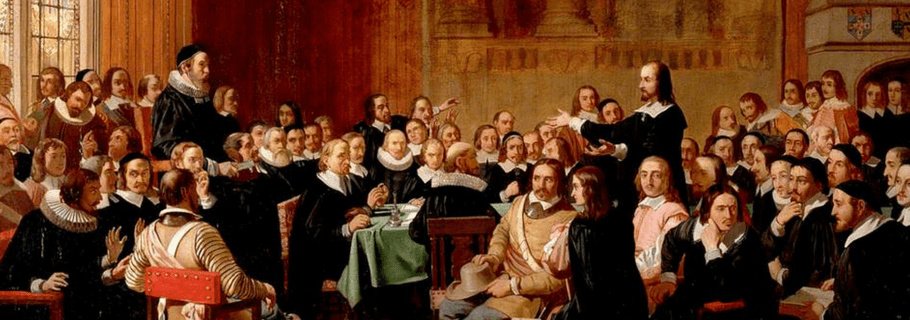
Take Up & Read
Search By Category
- Abraham 1
- Affliction 2
- Anthropology 1
- Atheism 1
- Baptism 1
- Biblical Counseling 7
- Calvinism 2
- Canon 2
- Christian Life 16
- Church Discipline 2
- Church History 4
- Confessionalism 3
- Confessions of Fatih 4
- Covenant Theology 4
- Culture 3
- Devotional 36
- Doxology 4
- Election 2
- Evangelism 6
- Exegetical Studies 6
- Family Worship 2
- Fear of Man 1
- Genesis 1
- Global Missions 1
- God 3
- God's Sovereignty 2
- Government 1
- Hamartiology 1
- Hermeneutics 9
- Historical Books 1
- History 1
- Incarnation 1
- Jesus Christ 4
- John Bunyan 1
- Justification 2
- Liturgy 9
- Old Testament 1
- Origins 1
- Pentateuch 1
- Podcast 32
- Politics 1
- Prayer 2
- Psalm 119 34
- Reformation History 1
- Repentance 1
- Resurrection 1
- Romans 8:28 1
- Sacraments 2
- Sermon Manuscript 10
- Sin 3
The Adopting Act of 1729 - Part 3
As with any major shift in church polity, there were unforeseen issues. The church rejoiced in the nature of the compromise, and the fact that the denomination did not fall to pieces. But there was still the issue of clarity in the Act and how it would be applied.
The Adopting Act of 1729 - Part 2
At the general assembly of 1728, John Thomson forced the issue by putting forward an overture to adopt the Westminster Standards as the governing body of the Presbyterian church.
The Adopting Act of 1729 - Part 1
This issue of denominational identity was a contentious one for the Presbyterians who traced their roots back to Calvin’s Geneva, Knox’s Scotland, and the Puritan nonconformists in the Church of England.


